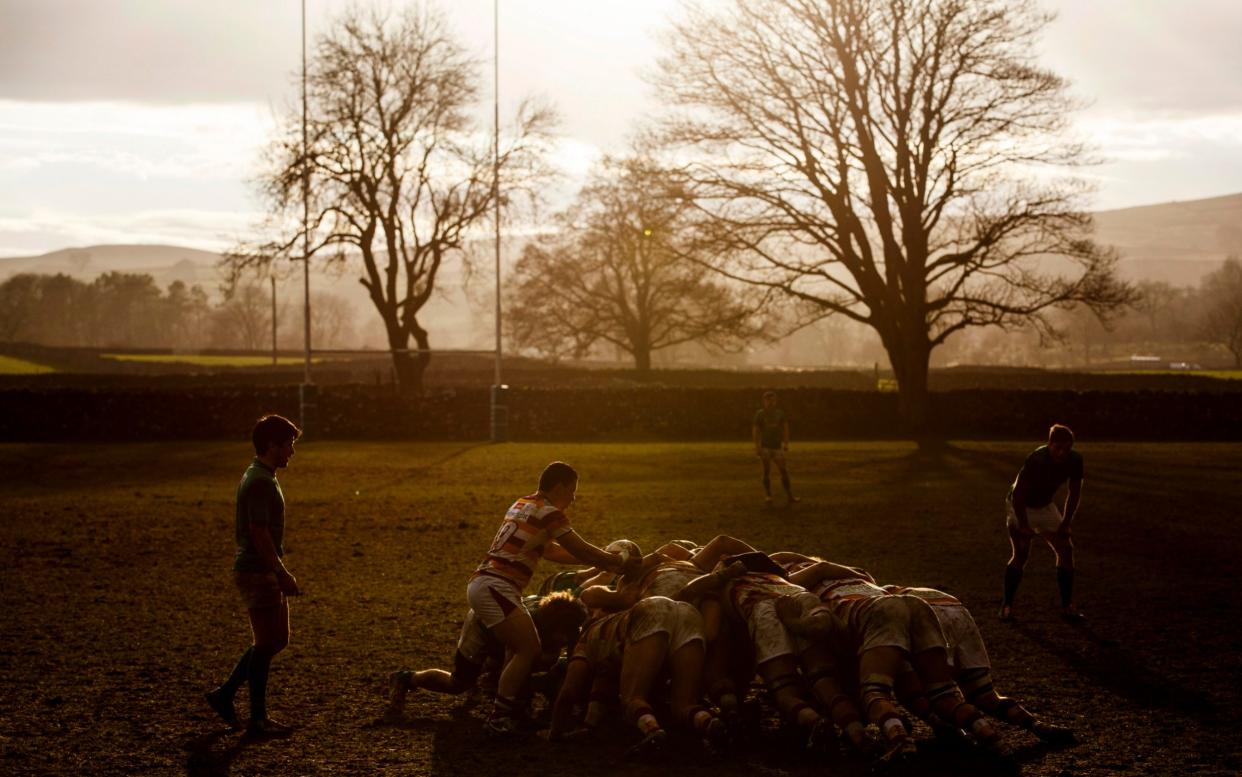Coronavirus hits rugby: Fylde RFC on altered centenary celebrations, lost income and what the future looks like

Fylde RFC is one of the most well-known rugby clubs in England, boasting former players such as World Rugby chairman Bill Beaumont, former England coach Brian Ashton, World Cup winner Jason Robinson and current Wasps coach Lee Blackett, among others.
While a club of such esteem and popularity may be better equipped to weather the Covid storm than others, the current situation has still presented its challenges. On Tuesday, the Prime Minister announced that crowds might not be back at sporting events until March next year, while the RFU announced on Thursday that a return to competitive action for clubs below the Premiership and Championship will not happen until January at the earliest.
That poses problems for everyone involved in community rugby, including clubs such as Fylde, whose 1XV were runners-up in National League Two North in the 2019-20 season and boast one of the largest average crowds in the national leagues, with a regular gate of between 500 and 1,000.
What was the situation like before Covid?
Before lockdown, as Fylde’s chairman Dave Young explains, finances and income generation at Fylde, like many community rugby clubs, revolved around match attendance and the use of facilities.
“During the normal season, our main source of income is matchdays – that’s hospitality and ticket sales,” Young tells Telegraph Sport. “During the week, we host functions – funeral wakes, parties, business meetings – but all those have gone. Our other sources of income are membership and sponsorship.

“We are fortunate, too, in that we have a couple of tenants: a soccer academy and a five-a-side arrangement on-site that are run by third parties. So they generate a small amount of income.”
How has Covid affected Fylde?
When Covid arrived, Fylde were in the thick of their centenary year. A gala dinner and one-off match against the Barbarians were planned, but when the pandemic put pay to those, the club looked to its loyal members and set up a crowd-funding exercise.
“We did get a good response from our members to the centenary appeal,” Young says. “Better than a lot of other appeals that I saw at the time – a lot of clubs were doing it. The fact we weren’t able to celebrate our centenary, and we were able to tie the appeal in with our centenary events, struck a chord with our members.
“But members have obviously been impacted by the current situation and some of them are cancelling their memberships. We are very lucky in that we have many loyal members who have continued to pay, so we are getting a bit of income from that.
"Sponsors, again, it’s a mixed bag: we have some sponsors who have continued their sponsorship even though they know there isn’t much going on at the moment; and then we have others whose businesses are perhaps struggling and have had to stop sponsorship.”
How are Fylde coping?
While Young admits that Fylde is an “asset-rich” club, the Government restrictions have meant that they are unable to use those assets to their full potential.
“Our problem is two-fold: we have quite a big facility with large overheads. The loss of crowds to us is quite significant for our income,” he says.
Local lockdown restrictions in Lancashire, too, are hindering efforts to adapt.
“We have limited the bar to Friday evenings and Saturday afternoon and evenings,” Young adds.
“It’s less attractive for people to come to the bar because they cannot mix households. Those measures have made it harder. We are not making any money on our hospitality activities.”
What does the future look like?
Young says he would be “very worried” if Fylde were unable to welcome back crowds before Spring 2021, but he is taking the glass-half-full approach. This is a rare opportunity for his club to press the financial reset button.
“We are using this period to have a full look at our business model,” he says. “What we anticipate is that when we come out of this period we will look slightly different then when we went into it.
“Sometimes we forget that the central product we have as a rugby club is rugby, so without it we are struggling. We can talk about bars and hospitality, but it all stems from rugby. Without that central product, we are going to struggle.”

 Yahoo News
Yahoo News 
